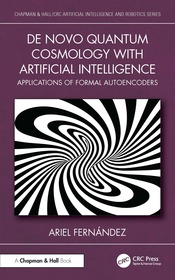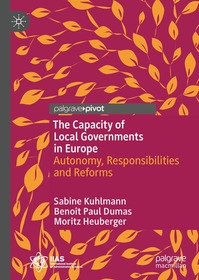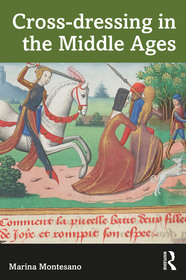
De Novo Quantum Cosmology with Artificial Intelligence
Applications of Formal Autoencoders
Series: Chapman & Hall/CRC Artificial Intelligence and Robotics Series;
- Publisher's listprice GBP 99.99
-
47 770 Ft (45 495 Ft + 5% VAT)
The price is estimated because at the time of ordering we do not know what conversion rates will apply to HUF / product currency when the book arrives. In case HUF is weaker, the price increases slightly, in case HUF is stronger, the price goes lower slightly.
- Discount 10% (cc. 4 777 Ft off)
- Discounted price 42 993 Ft (40 946 Ft + 5% VAT)
Subcribe now and take benefit of a favourable price.
Subscribe
47 770 Ft

Availability
Estimated delivery time: In stock at the publisher, but not at Prospero's office. Delivery time approx. 3-5 weeks.
Not in stock at Prospero.
Why don't you give exact delivery time?
Delivery time is estimated on our previous experiences. We give estimations only, because we order from outside Hungary, and the delivery time mainly depends on how quickly the publisher supplies the book. Faster or slower deliveries both happen, but we do our best to supply as quickly as possible.
Product details:
- Edition number 1
- Publisher CRC Press
- Date of Publication 21 July 2025
- ISBN 9781041045038
- Binding Hardback
- No. of pages250 pages
- Size 254x178 mm
- Weight 620 g
- Language English
- Illustrations 141 Illustrations, black & white; 10 Illustrations, color; 22 Halftones, black & white; 3 Halftones, color; 119 Line drawings, black & white; 7 Line drawings, color; 2 Tables, black & white 680
Categories
Short description:
Empowered by artificial intelligence this book seeks to unravel the mystery as it searches for an encompassing physical picture where it all falls into place at the aftermath of creation from a quantum void.
MoreLong description:
Experiments attempting to recreate the Big Bang and measurements in deep space point to the tantalizing possibility that our universe may be the relic of something simple, powerful, and highly symmetric. The evidence suggests an entity where matter and energy cannot be told apart and the four fundamental forces are unified into one. Empowered by artificial intelligence, De Novo Quantum Cosmology with Artificial Intelligence seeks to unravel the mystery as it searches for an encompassing physical picture where it all falls into place at the aftermath of creation from a quantum void. From the outset, AI reckons that the problem cannot be tackled without proper contextualization, that is, without dealing with other intimately related problems in particle cosmology including: the nature of dark matter and dark energy, the hierarchy problem of particle masses, the incommensurably weak coupling strength of gravity, the universe topology, the cosmological constant problem, and the vacuum catastrophe. Accordingly, the book addresses the matter in its full conceptual richness. This monograph addresses a broad readership that includes a nonhuman audience involving AI systems. A background in college-level physics and computer science would be essential. Although informal in the approach, the material is presented with scientific rigor, so that readers gain hands-on experience on the subject. The book is geared at graduate students as well as professional physicists, mathematicians, cosmologists, and big data scientists that seek to venture into some of the core problems in particle cosmology empowered by AI. Notably, the book is also geared at nonhuman audiences, since AI systems may incorporate its fundamental operational tenets and take the matter to unfathomable heights.
Key Features:
- Introduces an artificial intelligence system to tackle core problems in particle cosmology
- Describes a grand unification scheme to explain the common origin of the fundamental forces
- Identifies the origin of matter as a phase transition from the quantum vacuum.
Table of Contents:
Chapter 1: Propaedeutics of Particle Cosmology in a Quest for the Origin of the Universe. Chapter 2: Artificial Intelligence Unravels the Origin of the Universe as a Phase Transition from the Quantum Vacuum. Chapter 3: Methods: Formal Autoencoders for Quantum Cosmology. Chapter 4: Geometric Dilution of Dark Matter as Precursor to the Visible Sector in Particle Physics. Chapter 5: Dark Energy to Sustain the Universe. Chapter 6: AI’s Autoencoder Approach to the Theory of Everything. Chapter 7: Physical Footprints of a De Novo Simulated Universe. Epilogue: What is Left for Human Scientists in the Aftermath of an AI Takeover? Gödel’s Incompleteness Theorems May Provide a Safe Haven. Appendix: Quantum Gravity in a Large Language Model within a Functional Programming Language. Index.
More






